Waking with a headache? You might be grinding your teeth in your sleep, says expert
Expert warns 30% of us will experience bruxism — why we grind our teeth at night and how to stop
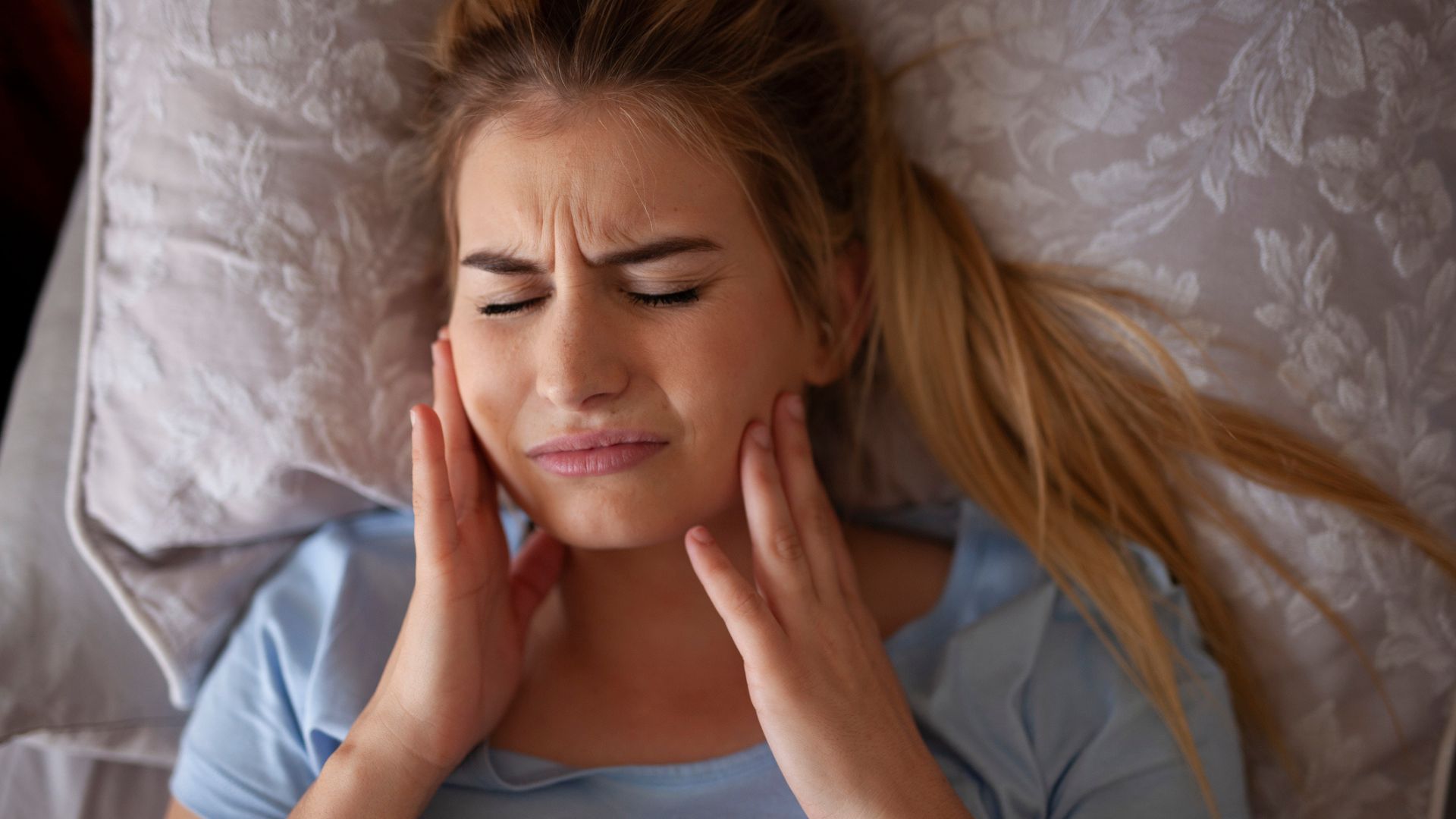
Whether you’re waking up with sensitive teeth, headaches or muscle ache in your jaw, you might be grinding your teeth in your sleep without knowing.
And while that might not sound like a big deal, the symptoms of bruxism – the medical term – could be ruining your smile and your sleep. Left untreated, complications of bruxism include expensive dental work, poor sleep quality and more.
So, to find out more about bruxism and why some people grind their teeth at night, we’ve spoken to the experts. We’ll also take a closer look at how you can stop this damaging habit and get better sleep and when you should seek professional help.
What is Bruxism?
Bruxism is the clinical term for teeth grinding or jaw clenching and it’s way more common than you might think.
“Bruxism is a repetitive jaw activity. That can include clenching, grinding your teeth, or even sliding your jaw forward during sleep,” says Aaron Glick, DDS, CEO of Spira Dental in Houston, Texas.
About 30% of people will experience bruxism at some point
For most people, grinding their teeth happens subconsciously while they’re asleep (aka sleep bruxism), though some people clench during the day, too (awake bruxism).
It’s not just a noisy annoyance or a “bad habit.” Grinding can lead to long-term dental damage, jaw soreness, disrupted sleep, and even headaches that linger for hours.
It’s said that about 30% of people will experience bruxism at some point. While it seems to be a dental-related problem, bruxism is a sleep issue, too, since it can cause micro-arousals that you aren’t aware of.
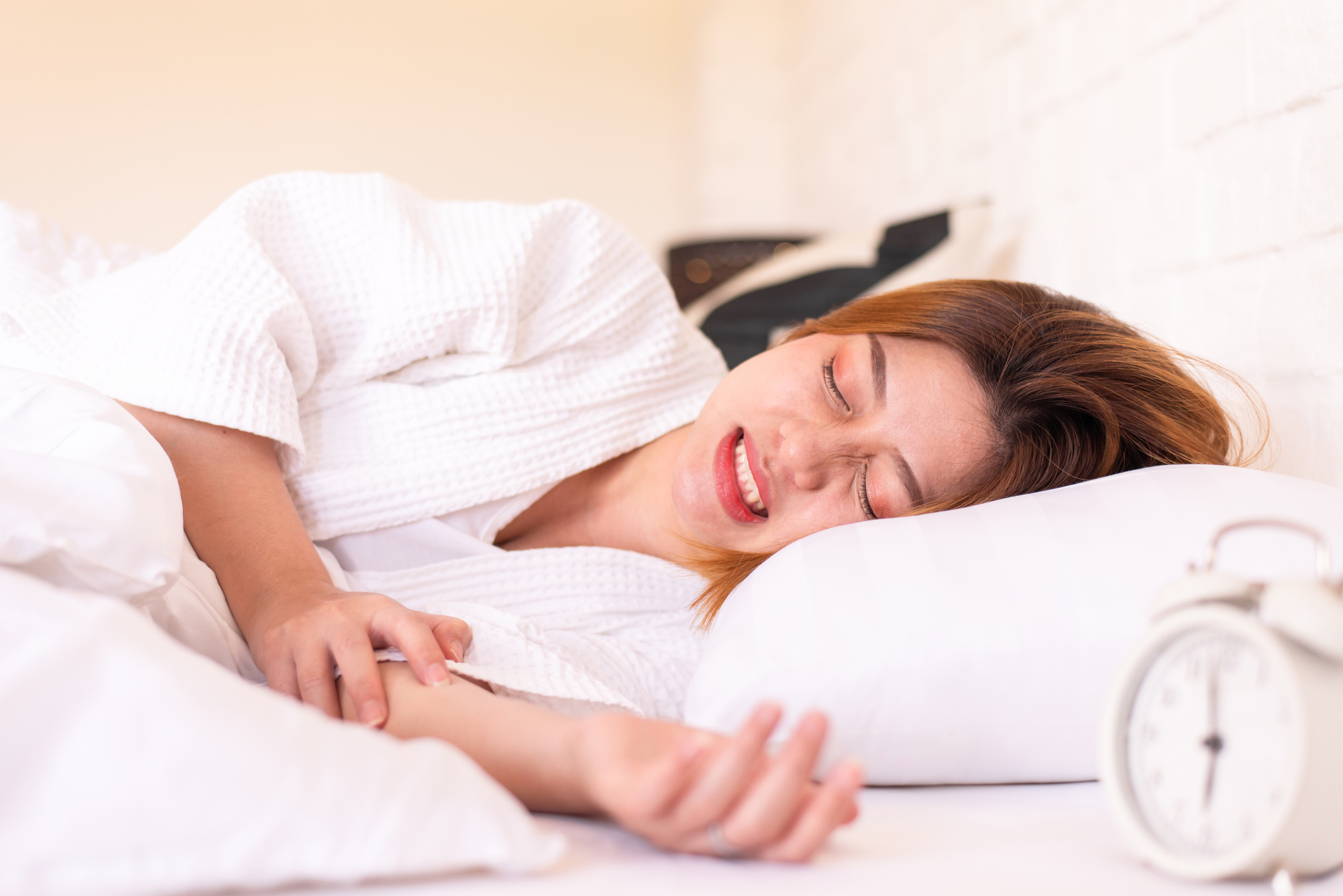
What are symptoms of teeth grinding at night?
You don’t need to hear yourself grinding to know you’re doing it. “If you’re waking up with jaw soreness or tightness, morning headaches, earaches, or you notice your teeth are flatter or more sensitive, those are signs,” Dr. Nguyen says.
He mentions that changes in your bite or loosened fillings could also be clues.
Often, it’s a partner who hears the grinding first. “It can sound like chewing on your own teeth,” Dr. Nguyen says. But even if no one catches you in the act, your mouth will likely show signs.
More subtle symptoms of bruxism include:
- Jaw pain or facial pain or headaches in the morning
- Popping or clicking when you open your mouth
- Tooth sensitivity
- Worn-down or flattened teeth
- Tinnitus (ringing in the ears)
- Interrupted sleep or waking up groggy
Why do people grind their teeth at night?
Teeth grinding isn’t one-size-fits-all and neither is the cause. Here are some of the most common reasons your jaw might be working overtime at night:
1. Stress and anxiety
“The most common trigger we see is psychological stress,” says David Nguyen, DDS, CEO, URBN Dental, in Houston, Texas. Emotional tension and anxiety during the day often show up as clenching or grinding at night.
Stress, anxiety and depression can also impact your sleep in other ways, disrupting your sleep cycles and circadian rhythm and harming the quality of your rest.
2. Sleep apnea
Grinding is closely linked with disrupted sleep, including conditions like obstructive sleep apnea (OSA).
Dr. Glick sees the associations frequently in his dental practice that specializes in treating patients with OSA.
“Sleep bruxism often occurs as a result of micro-arousals, little blips in your sleep where your brain wakes up for just a few seconds,” says Dr. Glick.
These moments may follow a pause in breathing or oxygen dips that happen with sleep apnea, possibly leading to jaw muscle activity. Studies have shown that sleep bruxism is prevalent in patients with obstructive sleep apnea.
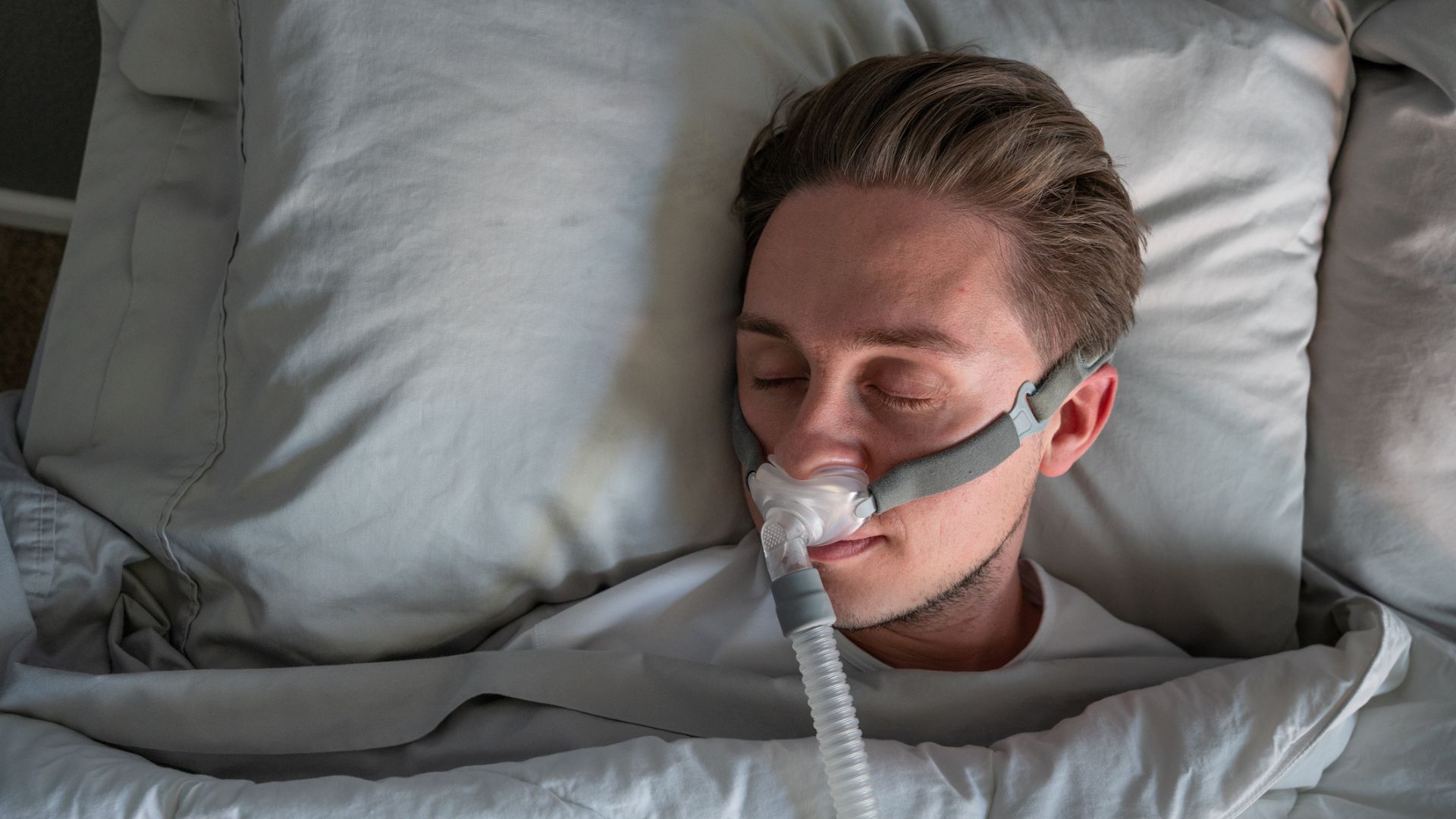
3. Medications (like antidepressants and ADHD meds)
Some prescription drugs may increase your risk of grinding. “Any medication that impacts serotonin or dopamine — like SSRIs, SNRIs, or stimulants such as Adderall and Ritalin — can trigger muscle hyperactivity during sleep,” Dr. Nguyen says.
Dr. Click adds that methadone, certain antipsychotics and even medications for bipolar disorder can contribute as well.
4. Consuming intoxicants
"Using alcohol, nicotine/smoking or consuming high amounts of caffeine may spike your chances of nighttime clenching and grinding at night," says Dr. Glick.
That nightcap you sip to “relax” after a stressful day not only hurts your ability to have a quality night’s sleep but it could be one of the additional causes of bruxism.

How to stop grinding your teeth at night
While there’s no universal cure, there are plenty of treatment options that can reduce bruxism symptoms and protect your smile. Both dentists stress the importance of understanding the root cause before jumping into solutions.
“Bruxism is multifactorial,” Dr. Nguyen says. “We try to isolate the variables, whether it’s stress, bite misalignment, or medication-related.” Talk to your primary care doctor and your dentist for a 360-degree approach to what might be causing bruxism and how to fix it.
Your dentist might recommend one or more of the following strategies:
1. Improve sleep hygiene
Poor sleep hygiene can worsen teeth grinding by increasing nighttime awakenings and tension.
Dr. Glick explains that people who toss and turn or experience poor-quality sleep may be more prone to micro-arousals, when their brain wakes up for 3 to 10 seconds, which could result in the jaw muscles clenching.
Creating a regular sleep schedule, keeping your bedroom dark and cool, avoiding screens before bed and keeping evening alcohol to a minimum may help reduce episodes. Here’s how to go to sleep earlier in 6 simple steps.
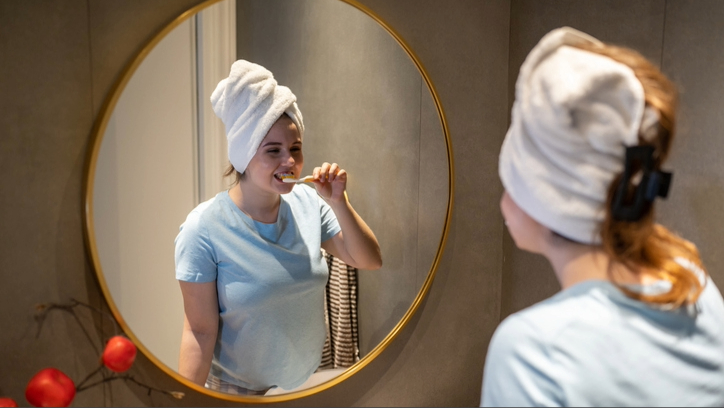
2. Wear a mouthguard
One of the most effective tools against bruxism? A professionally made night guard.
“Custom night guards position the jaw in the most comfortable place, called centric relation, which helps calm the jaw muscles and prevent damage,” Dr. Nguyen says.
He warns against over-the-counter drugstore versions, which may not align your bite correctly and could worsen the problem. They tend to cost between $400 to $700 but dental insurance usually covers 50 to 80 percent of the cost, Dr. Nguyen says.

People with a history of extensive dental work — like veneers, implants, or crowns — should always wear a mouthguard at night to avoid damaging those dental restorations.
Our experts said you might start to notice reduced symptoms of pain and tightness within two weeks of wearing a night guard but it might take up to a month for relief of irritating bruxism symptoms.
3. Create a stress-reducing nighttime routine
If anxiety is playing a role, it might be time to rethink your wind-down habits. Treating bruxism sometimes requires addressing the mental load you carry into sleep.
“When you’re psychologically stressed out, it causes your nervous system to kind of overload while you're sleeping,” says Dr. Nguyen.
That could be one of the reasons your jaw muscles are working while you sleep. Find out how the stress hormone cortisol plays a role in your sleep.
A calming nighttime routine that involves activities like reading, meditation, breathing exercises and yoga can help.
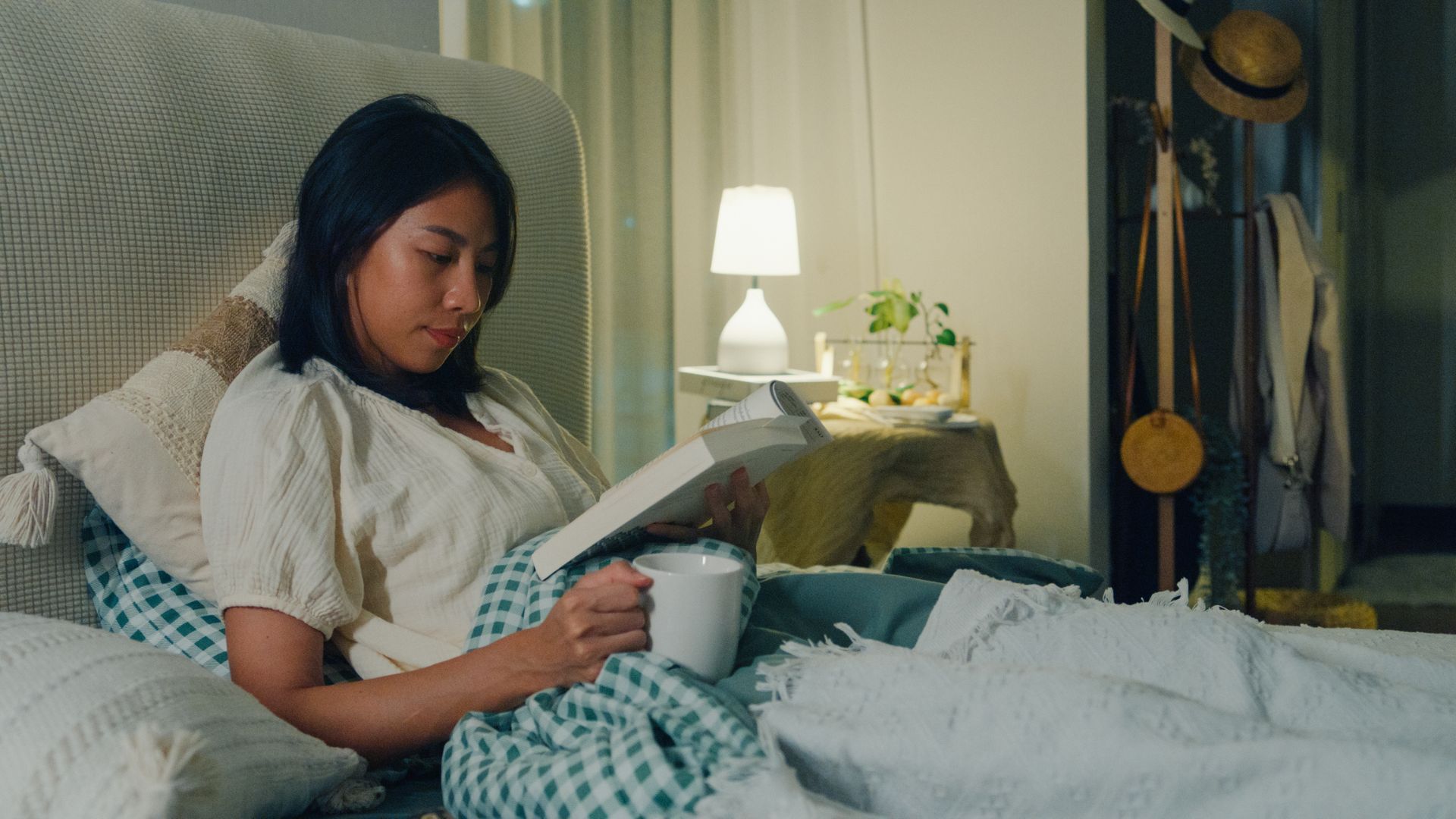
4. CBT therapy
For patients dealing with chronic stress or anxiety, cognitive behavioral therapy (CBT) done with a therapist can help manage the emotional triggers that contribute to nighttime grinding.
A therapist may also help identify behaviors in the patient that go unnoticed, like if they’re unconsciously clenching while in the school pickup line, stuck in traffic or whenever a certain family member texts their phone.
Learning relaxation techniques as well as what causes tension could have a positive impact on someone’s stress-induced bruxism.

5. Muscle-relaxing exercises
When jaw pain is part of the picture, muscle relaxation techniques can provide relief. “Some patients benefit from medications like muscle relaxants or even Botox to the jaw area (which would need to be readministered every three months), but we also encourage awareness exercises and biofeedback,” says Dr. Glick.
Simple strategies like setting reminders to check if your teeth are clenching during the day (like on that weekly work Zoom meeting?) can build awareness and prevent unconscious clenching.
Ask your dentist for specific exercises that might help with relaxing the jaw muscles and reducing overall tightness and tension in that area.
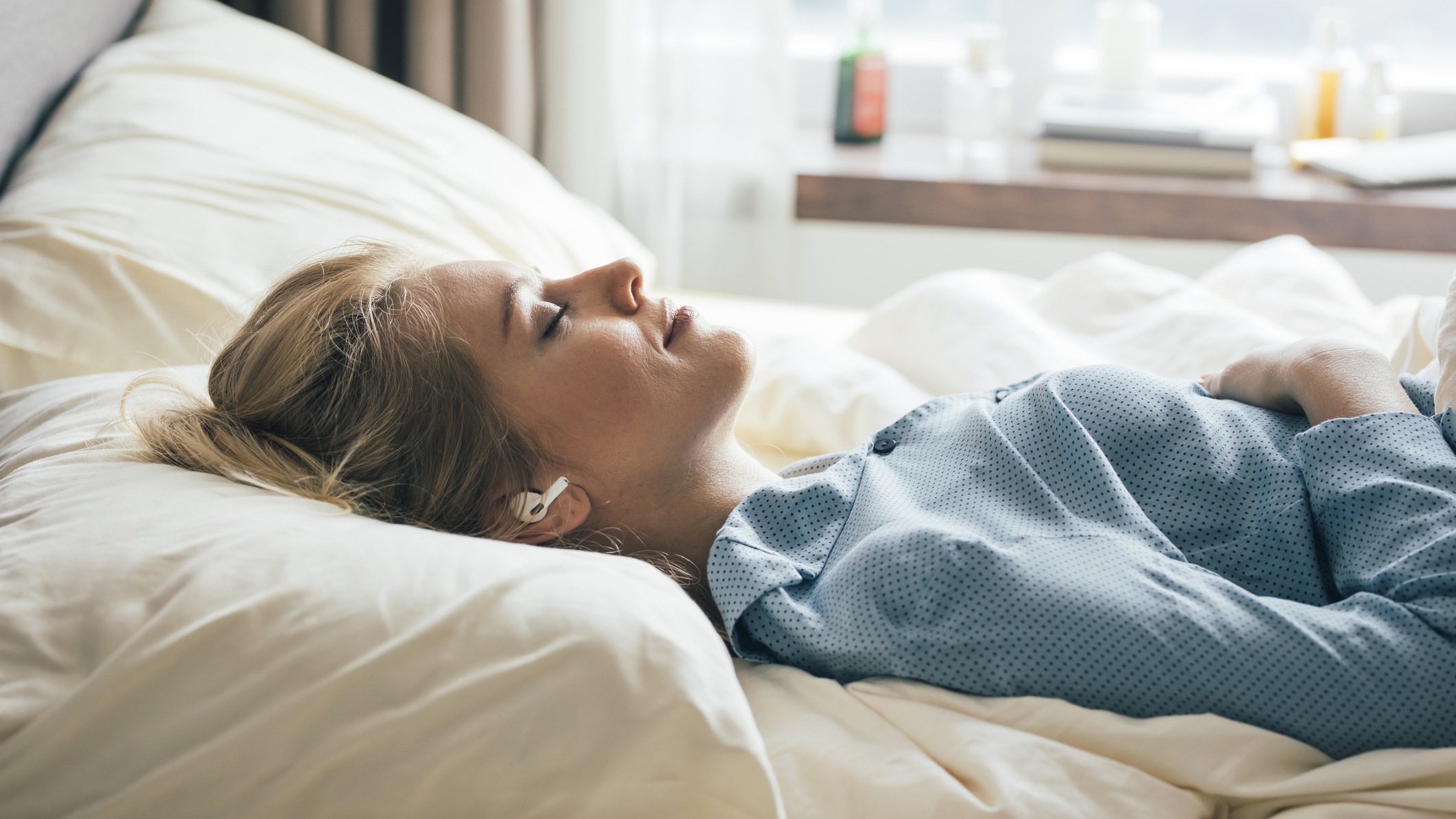
Can you cure bruxism?
Maybe. It depends on the cause. “Some people see their symptoms disappear after making lifestyle changes, like reducing stress or changing medications,” says Dr. Glick. He had one patient whose teeth grinding at night stopped when he retired from his job!
Some people see their symptoms disappear after making lifestyle changes
Try to resolve bruxism by finding ways to manage stress better, talking to your prescriber about medications you’re on and their side effects and seeing if a custom mouth guard can solve the problem.
Overall, the best strategy to stay on top of teeth grinding is by protecting your teeth early and being aware of bruxism symptoms.
“Once the enamel layer is worn down and the dentin is exposed, you can develop significant sensitivity,” Dr. Nguyen says. In some cases, the next step is crowning the teeth.
As for whether you’ll need a night guard forever? That varies. “Stress comes and goes, so it’s often better to wear the guard consistently,” Dr. Glick suggests. “If your grinding is due to a structural issue like a misaligned bite, you might need ongoing support.”
Should you be concerned about teeth grinding at night?
Bruxism may seem like a harmless habit, but if left untreated, it can wreck your sleep, do a number on your jaw and cost you thousands in dental repairs.
The good news? Once you know the signs, you can take action.
If you’re waking up with headaches, jaw pain or sensitivity, don’t ignore it. Talk to your dentist or general practitioner about what’s going on.
Diana is an experienced journalist and editor who covers health and wellbeing, creating content for a range of leading brands including Real Simple, People, Good Housekeeping, Headspace, and WebMD. For Tom’s Guide, Diana focuses on sleep health, mattresses, and fitness equipment. Diana has reviewed mattresses from top bed brands including Saatva and Tempur-Pedic, writing helpful guides full of her top tips on how to buy the right mattress and how to keep your bed clean. Recently, Diana’s focus has turned to sleep health, where she talks with GPs, neuroscientists and chiropractors to explore subjects like insomnia and sleep talking.
You must confirm your public display name before commenting
Please logout and then login again, you will then be prompted to enter your display name.
 Club Benefits
Club Benefits






